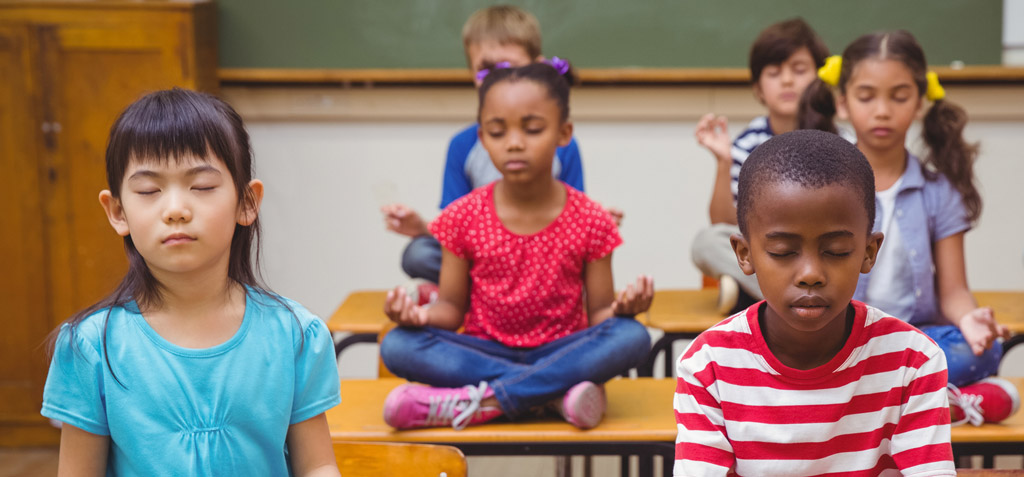What is metacognition?
Commonly referred to as “thinking about thinking,” metacognition is the practice of noticing, understanding, and ultimately controlling your own thought processes.
The concept of metacognition has been around since Plato’s time, but has more recently come into the spotlight as an educational tool. As the ideal teaching model has shifted away from “filling a blank slate” toward a focus on teaching the whole child, teachers are now expected to do more than just tell students information; they need to teach kids how to learn.
Like any other skill, metacognition can be taught, learned and practiced by anyone—even kids as young as three years old!

Metacognition is the practice of noticing, understanding, and ultimately controlling your own thought processes
Why does it matter?
Research has shown that learners who practice metacognition tend to be happier and more academically successful than their non-metacognitive peers.
Kids who can practice metacognition can more effectively participate in self-evaluation and self-assessment—skills that can help them become independent life-long learners.
Below are some strategies you can use to help the children in your life develop strong metacognitive skills:
Metacognitive Strategies for Everyone
Talk About It
Often, our thoughts move through our minds faster than we can keep track of them. Talking aloud about our thought processes, even if it’s just to ourselves, can help us observe our thinking with more clarity.
Write it Down
In order to really practice metacognition, learners need to slow down enough to allow their awareness to catch up with their thoughts. Reflective writing is one of the best methods for this, as their brain is forced to slow down to match the speed of the hand they are writing with. (For this reason, I would recommend encouraging handwritten reflections over typewritten ones.)

Mindfulness
Mindfulness, also called meditation, is the centuries-old practice of becoming aware of your thoughts, feelings, and surroundings. There are mindfulness exercises to suit every age, and I’ve included some of my favorites in each section below. (You can also find a lot of mindfulness exercises online—here are even more to try!)
Metacognitive Strategies for Ages 3-6
Draw it out.
Articulating thoughts and feelings through words can be difficult for this age group. Instead, try having them draw a picture of what they have learned or what they are thinking about.
Use the power of “Why?”
If you’ve spent time around kids this age, you know that “Why?” is their favorite question! At this stage of development, their curiosity is blooming and their capacity to learn is greater than ever. By asking them why they think what they do, you help them dive deeper into their own thinking patterns.

Mindfulness Exercise
for Ages 3-6:
Chocolate Meditation
Have your child(ren) sit very still with their eyes closed and their mouth open. Tell them you will put something yummy in their mouth, but they are not allowed to eat it—yet! Instead, prompt them to let it sit on their tongue while they experience it. Now, put a small piece of chocolate on their tongue, and ask them to think about how it feels; the flavor, the texture, the temperature, the sensation of melting… Be as descriptive as you can, guiding them to really be aware of it, then—swallow!
*Tip: After this exercise, talk with the child about how doing (or eating!) things quickly can cause us to miss out on the real fun of it!
Metacognitive Strategies For Ages 7-9
Pause and Reflect
This age group can be full of energy and enthusiasm! Taking a moment to pause and think about their thinking is essential for young learners to develop metacognition. Reflection can take form in conversation, writing, artwork, or any other means of expression.
Act it Out
At this age, much of children’s imaginative play transforms from fantasy to role-playing; in other words, they learn to understand the world by acting out “real-life” situations. Encouraging kids to act out how they think and feel about real situations will give them an opportunity to reflect on their thinking in a way that feels like natural play.

Mindfulness Exercise
for Ages 7-9:
Awareness Walk
Burn off some energy and practice mindfulness at the same time by taking children on an Awareness Walk. As you walk together, point out new things that kids might never have noticed before; sounds, smells, plants, colors… this will help set the stage for becoming aware of themselves, as well!
Metacognitive Strategies for Ages 10-12
Role Models
Kids at this age are learning to think using logic, deductive reasoning, and abstract thought. In short, they are beginning to think like adults! As an adult in their life, you can help kids develop metacognition by talking aloud about your own metacognitive strategies. When thinking through a mental block, solving a misunderstanding, or learning new information, talk to the child as a peer. They’ll see your strategies and likely try them out themselves.
Trial-And-Error
This age group is marked by a newfound sense of individuality and expression. Allow these children a chance to try out different metacognitive strategies that might work for them (writing it down, using a chart or tracker, talking it out, etc.) and discuss together what works about these strategies and what doesn’t. Encourage them to find a strategy that works for them and stick to it, making it entirely their own!

Mindfulness Exercise
for Ages 10-12:
Guided Imagery
Have children sit or lay in a comfortable position and close their eyes. In a low, calm voice, guide them to take notice of their surroundings, their bodies, and finally their thoughts. Read from a guided imagery script as they relax and listen.
Have you tried any helpful metacognitive strategies with kids?
Join our social community and let us know!
![]() Join the Studycat Club to access Fun English language learning resources »
Join the Studycat Club to access Fun English language learning resources »


